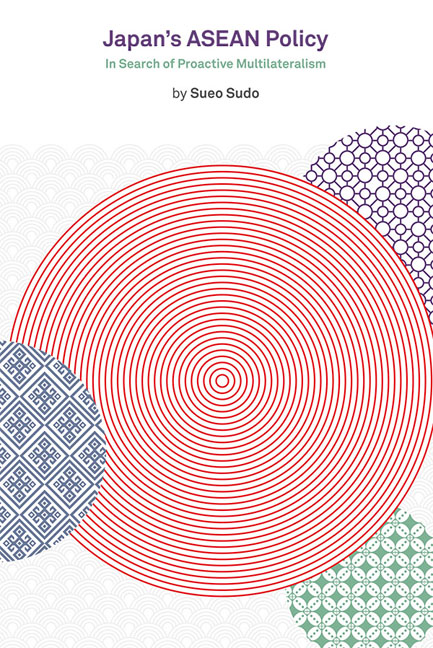Book contents
- Frontmatter
- Contents
- List of Figures and Tables
- Preface
- List of Abbreviations
- Introduction
- 1 ASEAN in Japanese Multilateral Foreign Policy
- 2 Embarking on Japan's ASEAN Policy: The Limitation of the Mainstream
- 3 Straightening the ASEAN-Indochina Divide: The Pursuit of the Alternative Stream
- 4 Consolidating an ASEAN-centred Policy: The Challenge of the Intermediate Stream
- 5 Fortifying a Japan-ASEAN Strategic Partnership: The Resurgence of the Mainstream
- 6 Towards a New Regionalism in East Asia
- 7 Conclusion
- Bibliography
- Index
- About the Author
4 - Consolidating an ASEAN-centred Policy: The Challenge of the Intermediate Stream
Published online by Cambridge University Press: 06 June 2017
- Frontmatter
- Contents
- List of Figures and Tables
- Preface
- List of Abbreviations
- Introduction
- 1 ASEAN in Japanese Multilateral Foreign Policy
- 2 Embarking on Japan's ASEAN Policy: The Limitation of the Mainstream
- 3 Straightening the ASEAN-Indochina Divide: The Pursuit of the Alternative Stream
- 4 Consolidating an ASEAN-centred Policy: The Challenge of the Intermediate Stream
- 5 Fortifying a Japan-ASEAN Strategic Partnership: The Resurgence of the Mainstream
- 6 Towards a New Regionalism in East Asia
- 7 Conclusion
- Bibliography
- Index
- About the Author
Summary
In the late 1980s and first half of the 1990s, Southeast Asian international relations were preoccupied by the Cambodian conflict and the restructuring of regional order in the post–Cold War period. Having successfully resolved the much-prolonged Cambodian conflict in 1991, the Association of Southeast Asian Nations (ASEAN) emerged as a united actor to be reckoned with. Encouraged by its diplomatic success, ASEAN seized the moment to play a leading role in activating closer regional interaction, as exemplified by the establishment of the ASEAN Regional Forum (ARF), the Asia-Europe Meeting (ASEM) and other supportive organizations such as the Asia-Pacific Economic Cooperation (APEC) and the Council for Security in the Asia-Pacific (CSCAP).
Against this background, Japan also responded positively to stability in Southeast Asia. As with Fukuda's overtures, Prime Minister Noboru Takeshita attended the Third ASEAN Summit in Manila and never failed to recognize the importance of ASEAN as a partner. Seizing the opportunity to officially proclaim another doctrine in 1987, Japan's ASEAN policy entered a new phase. In particular, the dawn of the post–Cold War period necessitated new initiatives from Japan. Japan's political role was required to resolve the Cambodian conflict and to offer reconstruction assistance. Japan's economic role was also needed to boost the ASEAN economies in the wake of the conflict. It was also important for Japan to further strengthen mutual understanding by promoting cultural exchanges. Following the effects of the Fukuda Doctrine, this chapter observes closely how Japan reinforced political, economic and cultural relations with ASEAN in the post–Cold War period.
ASEAN IN 1987: 20TH ANNIVERSARY
When ASEAN's third decade began on 8 August 1987, much attention was given to how ASEAN could kick off a new decade. There was a sense of déjà vu as ASEAN needed to reiterate the way it started ten years ago. The year 1987 was significant in that ASEAN deliberated on two critical issues, namely, the need to enhance tangible forms of intra-ASEAN cooperation and the need to reassess the ASEAN dialogue-partner relationships. Enhancing intra-ASEAN cooperation needed greater economic cooperation and was where ASEAN was at its weakest. The ASEAN Preferential Trading Arrangement (PTA), for instance, included a list of more than 18,000 items, but this had not made much impact because ASEAN members continued to limit its scope with substantial exclusion limits.
- Type
- Chapter
- Information
- Japan's ASEAN PolicyIn Search of Proactive Multilateralism, pp. 104 - 147Publisher: ISEAS–Yusof Ishak InstitutePrint publication year: 2014

